Are you curious about what it means to study an IT education and work in a leading Danish company? Below you will find a wide range of stories from the perspective of student assistants and interns. Get inspired and experience how many different exciting companies and tasks there are in this field
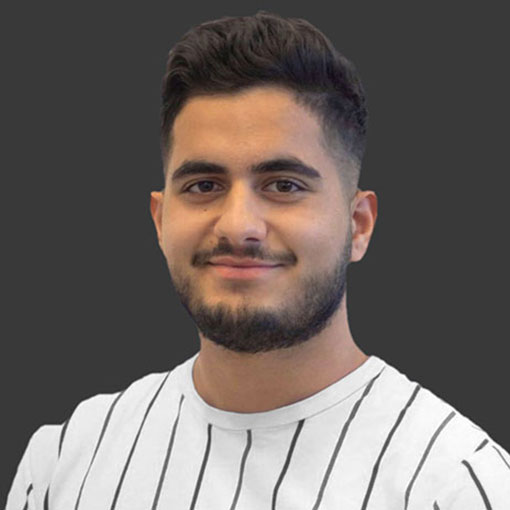
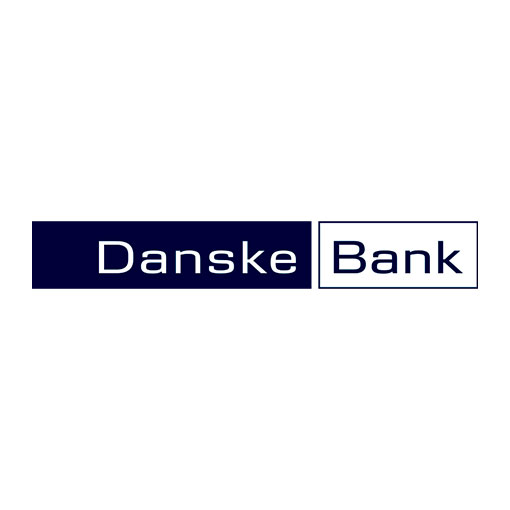
Software Technology Engineering
Former Student Worker, Software Engineer
Danske Bank

Software Technology Engineering
Former Student Worker, Software Engineer
Danske Bank
Can you tell a bit about yourself?
My name is Abdallah Ajjawi, and I am a graduate of Software Technology Engineering. I chose this education because I have always loved coding and designing websites or software. In addition, I also loved the idea that you, as a Software Developer, can work in almost any field of work.
What are your tasks at Danske Bank, and which technologies do you use in your work?
As a Software Engineer at Danske Bank, I primarily work with Customer Facing Interfaces (also called front-end). In my team, we have been working on an application for corporate clients with accounts in more than one bank to support a multi-banking overview for accounts and transactions.
Since I work with the front-end, I work in JavaScript frameworks (Angular and React). What I like about doing front-end is that the results are always right in front of you. You can follow the progress as you develop. And with my background in freelance graphic design, I love to create valuable and aesthetically pleasing designs and experiences for the user.
How is your team and what does a typical workday look like?
We are around ten people in my team, and we have a fifty-fifty split between Development and Business. Our team spirit is good, and we have a daily routine where we work out for 15 minutes before lunch. Once or twice a month, my team will hop on a call (in these online times) and play a game or find something non-work-related to maintain a good team spirit.
When I meet at work on a typical workday, we usually have a daily meeting where we catch up with the team and talk about what we are doing and what we did yesterday as a part of the SCRUM framework. Afterward, I will either be working on implementing a new feature, fixing a bug in the code, or participating in meetings. These meetings can be about exploring new features and designing them in close collaboration with the UX designer and business side of the team. But also, client meetings where we present new features and get some insightful feedback.
What do you like about working at Danske Bank, and what is important to you?
I think my job is exciting because it is one of the few fields of work where the tools and technologies you use to develop are being improved and changed at such a rapid speed that you will learn something new all the time. The other part of it is that you can create something magical using code. I love finding repetitive tasks that I would do on my computer and then writing a couple of lines of code, and voila, now I never have to do that manually again. For some of my non-dev friends, I seem like a wizard.
I am very motivated by the fact that what I am building with the software makes people's lives easier on a daily basis. I hate to see good code go to waste or never published. So, it is central that the company I work in is a front runner in their industry. I like that what we produce is being used on a big scale and improves the workflow of millions.
In what way do you think others should take an IT education?
Fun fact. In my fourth semester, I was close to dropping out and studying psychology. I am glad that I did not because Software Engineering has given me the ability to create applications and systems professionally and in my free time. It has given me a new way of thinking. I solve problems (both code and non-code) with a mindset that has made my life a lot easier. Being able to isolate a specific problem, line up the step to achieve a result, and then work towards that result step-by-step (agile). It is a nice way of working, and therefore I think others should choose an IT education.
.
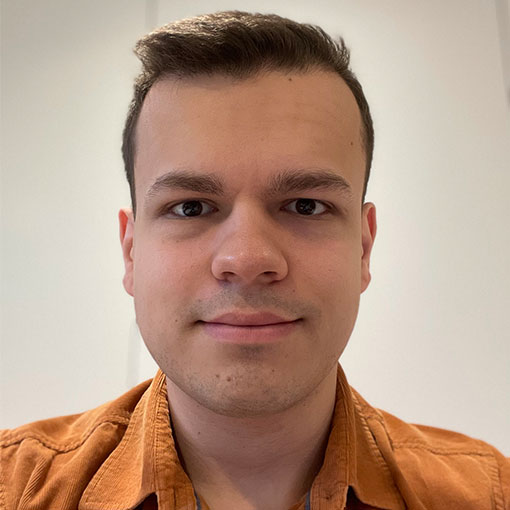

MSc Computer Science
Student Worker
Grundfos, AI Solutions

MSc Computer Science
Student Worker
Grundfos, AI Solutions
Can you tell a bit about yourself?
My name is Adam Petro, and I am studying MSc in Computer Science. I chose this education because I have been passionate about computers and technology since I was a kid. I did my BSc in my home country, Slovakia, and afterward, I felt like expanding my horizons.
Why did you choose to study in Denmark, and how is it to study in Greater Aarhus?
I decided on Denmark because of the open and welcoming approach to international students, and I chose Aarhus University mainly for the quality of education. In other words, the progressive approach to learning and the fact that professors are true experts in their field. Moreover, as a student, you would want to aim for a fairly large city where a lot is happening, so you get to meet new people, socialize, and participate in a variety of events. That makes Aarhus an ideal sweet spot between overly expensive (and quite large) Copenhagen and other smaller Danish cities. Also, the academic atmosphere in Aarhus is just on another level. The size of Aarhus University is quite impressive, and the companies that are working, hiring, and doing research here (especially in CS and IT) are really innovative.
What are your tasks at Grundfos, and which technologies do you use in your work?
In my student job at Grundfos, I mainly do data-related tasks: I work on a pipeline processing data from thousands of different products worldwide. I then visualize the processed data and make presentations with interesting discoveries to my superiors. I also analyze data and create visualizations for other teams.
I do not work with technologies you would call particularly groundbreaking. But the main project I work on is a conventional C# application running as a cloud function in Microsoft Azure. The data I work with is usually retrieved from Microsoft Cosmos DB or SQL database in Azure. I analyze the data using Python and a variety of Python data science packages. Lastly, the visualizations get finished in Power BI. I occasionally use Excel to help give non-technical people a better insight into the data.
Can you tell us about your team and what a typical workday look like?
There are around 13 people on my team. The team is very friendly, and we joke a lot (even during meetings). We usually hang out on coffee breaks and invite each other to exciting activities outside of work like sports events, social events, etc. Moreover, we are honest when we do a good job or a shitty job. Also, I think the working atmosphere is really calm but motivating at the same time.
I work three times a week, out of which I go to the office once. Since I am a morning bird, I try to be at the office around 07:00. I usually work for around 2.5-3 hours until 10:00, when the usual Monday meeting starts. We have a department meeting that takes 1 hour at 10:00 and then I have a 15 min. meeting with my supervisor to align our work. Since it is already around 11:20 after the meetings are over, we usually hang out and talk with the team for a couple of minutes and head to lunch. After lunch, I do not have more meetings - so I can focus fully on my work for another three hours and take breaks as necessary to refresh my mind. I usually leave the office around 15:40.
What do you like about working at Grundfos, and what is important to you?
I think my job is exciting due to the sheer possibilities offered. Grundfos has basically no limits in projects that the employees can take part in. There are interesting problems for almost anyone, and Grundfos encourages people to work on something new and innovate instead of burning out doing the same monotonous task every day. In other words, it is important to me that I get to learn as much as possible and that my employer helps me in that path and get value from my work.
In what way do you think others should take an IT education?
Aside from the obvious, such as that you will most likely find a job and that the job will most likely be well paid, I think that studying IT is beneficial because it teaches you so many relevant skills. In my experience, IT people are some of the best critical and analytical thinkers since they work on solving problems daily and optimizing those solutions. Furthermore, they are excellent self-learners. Working in IT often requires learning new technologies, many of which one has never heard before. That means one needs to study the documentation and learn by oneself. Also, since the entire world is shifting more and more towards digitalization, working in IT does not mean just working only with computers anymore. One has to study real-world problems and then find a way to solve them using computers. Studying Computer Science means that you can basically work in any area you desire!
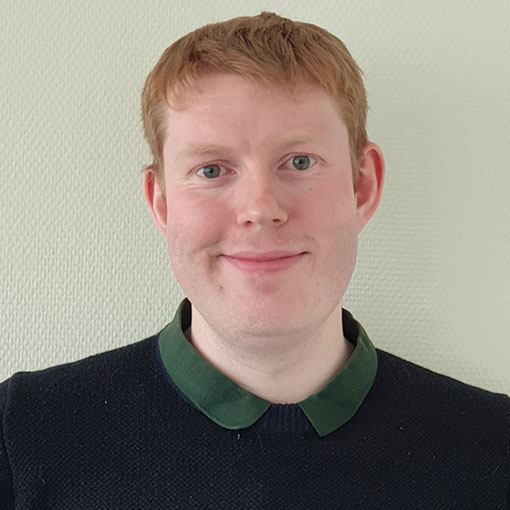

Computer Engineering
Student Worker, IT Software Engineer
Danske Bank

Computer Engineering
Student Worker, IT Software Engineer
Danske Bank
Can you tell a bit about yourself?
My name is Alexander Mølsted Hulgaard Rasmussen, and I am studying Computer Engineering. I chose to study Computer Engineering because I have always liked working with computers. I first encountered software and hardware development back in high school and have loved it since. I fell in love with all the possibilities you have as a developer, and I wanted to have the ability to build an app for a specific purpose. The ability to create something that could help many people become more efficient was something I thought was very interesting.
What are your tasks at Danske Bank?
I am working as a Student Worker at Danske Bank in the Utilize Payment Overview & Status squad, where my primary tasks are to build/set up new infrastructures for different projects. I am also supporting the team regarding our existing platform when necessary, and if updates are needed. Moreover, I am a part of a Cross Tribe (department) team running a logging cluster for application logs, where our task is primarily onboarding users.
Which technologies do you use in your work?
I feel very fortunate to work with many exciting and modern technologies, where I am currently working with Kubernetes, Kafka, and Elasticsearch. These technologies are all exciting because they are used a lot in the industry. Kubernetes is an excellent product that Google has gifted to the Cloud-Native Computer Foundation, and it is at the center of the movement towards the cloud. It makes it easy for the developer, so it becomes more about creating the application than hosting it. Kafka gets used for transforming all the data we have from different sources into a model we can use. The great thing about Kafka is that it can handle a massive load and transform millions of messages a second, which we need at peak time. That is entirely different compared to the stuff we use at school. I also work with Elasticsearch, which gets used for searching through data fast. In my primary team, we use it to provide a google-like-search-feeling, which makes it really interesting when we have something significant to search for fast. In my Cross-Department team, we run Elasticsearch as a service for all squads in the department. The crews use it for application logs to find errors.
How is your team?
We are ten people in my team, four Backend Developers, three full-time, and me as a Student Worker, two Frontend Developers, two Business Analysts, a Product Owner, and an Agile Coach. I think we have a great team spirit. There is always some bantering in our meetings and a lot of laughing, sometimes a bit too much, but especially during Covid-19, we tried to make it a lot more fun to work. During the day, we often go to the football table to play, and on Fridays, I sometimes go to our Friday bar for a drink with my colleagues.
What does a typical workday look like?
On a typical workday, I will meet between 07:00-08:00 and skim through my emails and Microsoft Teams to see if something has happened since the last time I was at work. I would then start continuing working on my tasks. When my colleagues come into the office, we chat a bit, also if there is anything urgent that cannot wait for us to discuss at Scrum. After Scrum, I usually proceed with my current task. Sometimes I have a couple of other meetings during the day, but for the most part, I am allowed to skip those I do not think are essential for me to optimize my 15 hours a week. The rest of the day, I work on my assignments and discuss different solutions with my colleagues. Sometimes we play table football or something else to just have some fun while working.
What do you like about working at Danske Bank, and what is important to you?
My job is exciting because every day is different, and there is always something new to learn and improve. Even when there is a lot of pressure and something would not work, I have good colleagues who make my day. The most thrilling thing is when we present new features to our customers and hear their feedback - especially the positive kind.
The greatest part of my job is working with something I find very interesting and not just getting “Intern/Student Worker tasks” that do not matter. I have always been a part of teams that have given me responsibility, which I find essential to develop. Also, I appreciate the people I work with because even on the worst day - they will make it good.
In what way do you think others should take an IT education?
Others should take an IT education because of the endless possibilities you get. You have the opportunity to work in almost any type of industry; if you want to be someone who can impact the healthcare system, you can be a part of that; if you want to work abroad, that is a possibility. There are all kinds of different people in IT, and IT is not as scary and challenging as people sometimes think it is!
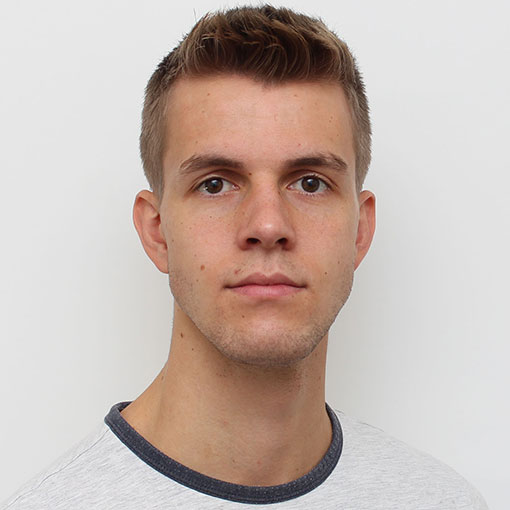
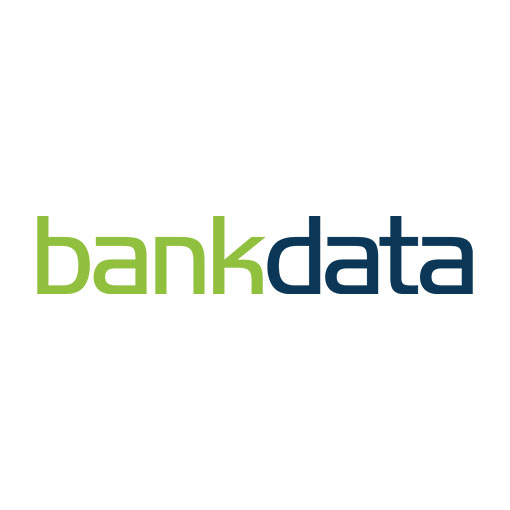
Datamatician
Student Worker
Bankdata, Risk & Compliance

Datamatician
Student Worker
Bankdata, Risk & Compliance
Can you tell a bit about yourself?
My name is Anders Fogh Strøm, and I am studying to become a Datamatician. Since my dad works in IT, I have always known that I would like to work in that sector. However, I was not sure which direction to pick. But after I attended at u-days, this education caught my interest.
What are your tasks at Bankdata, and which technologies do you use in your work?
As a student worker at Bankdata, I help my department and the Management make Power BI reports on different topics in risk management. Therefore, I primarily work with Power BI, where I think it is interesting to make queries and work through the problems in that connection.
How is your team, and what does a typical workday look like?
In my team, we are six people, and there is a great team spirit. Moreover, I find people throughout the whole organization very helpful always. On a typical workday, I will either work from home or travel to Bankdata’s office and solve whatever needed task within my field. In other words, I will make reports in PowerBI and help my team with their responsibilities.
What do you like about being a student worker at Bankdata, and what is important to you?
I think my job is exciting because I can use my skills to help somebody else. Moreover, I like that I get to choose when I want to work and that I also get to work in a large company. Additionally, it is important to me that I get to develop my competences and feel useful.
In what way do you think others should take an IT education?
In my opinion, others should take an IT education because there are many great jobs and opportunities within this field.
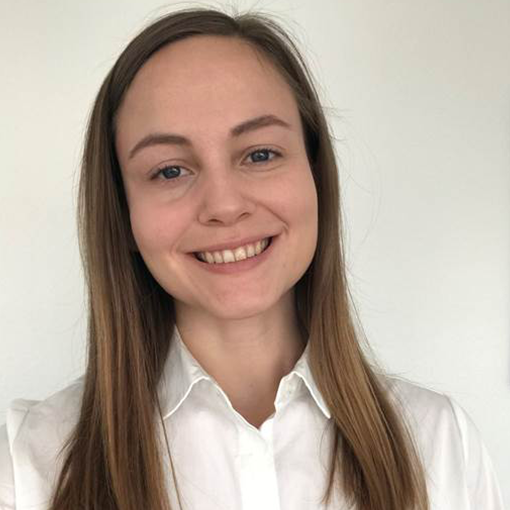

Business Intelligence
Intern, Business Intelligence
Salling Group, Business Intelligence

Business Intelligence
Intern, Business Intelligence
Salling Group, Business Intelligence
Can you tell a bit about yourself?
My name is Caroline Jensen, and I am studying a master’s degree in Business Intelligence. I chose this education because I like working with numbers, and I find it very interesting what you can do with Business Intelligence. And I am lucky to work with this next to my studies through my internship at Salling Groups’ Business Intelligence Department.
What are your tasks at Salling Group?
As an intern at Salling Group, I work with requests from different departments in the company, where I make changes in publications or dashboards. For example, I have made a dashboard for BR’s Store Managers and a dashboard for Logistic, where they can see relevant stock movements +/- 3.5 Mio. to prevent mistakes.
Which technologies do you use in your work?
The primary technology I work with is Sap Analytical Cloud (SAC). I think it is nice that I can make a dashboard that makes it easy for the user to see the most relevant information in a short time. Moreover, I work a lot in HANA studio, where we make queries for reports and dashboards. In connection, I find it interesting to learn all the possibilities the tool contains to make the best queries, and it is very user-friendly with drag and drop.
How is your team and what does a typical workday look like?
There are two teams in the department I work in, and in my team, we are around eight people. There is a really good team spirit in the BI Department, and everyone wants to help if you have a problem. Furthermore, we work with Scrum in my team.
On a typical workday, I will first get an overview of what I need to do that day, and then I update Jira with the tasks in progress or my backlog. Afterward, I have a daily meeting with my team, where we tell each other what we are working on and if we have any issues or need help on something. Then, I begin with my tasks and have meetings with stakeholders if necessary.
What do you like about being an intern at Salling Group?
In my job, I like that we produce relevant material that gets used out in the stores “in the real world.” Moreover, I appreciate the feeling that my work has value to others.
In what way do you think should others take an IT education?
I think that others should take an IT education because more and more companies use IT and will be looking for people with an IT background. IT has come to stay, and therefore it is a very relevant education to take. Further, IT is broad hence you can work with many different things within the field.
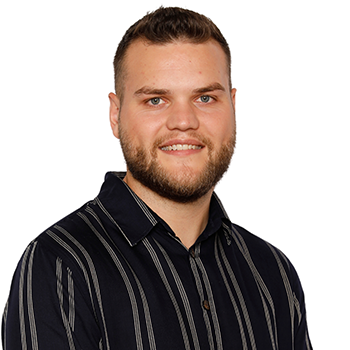
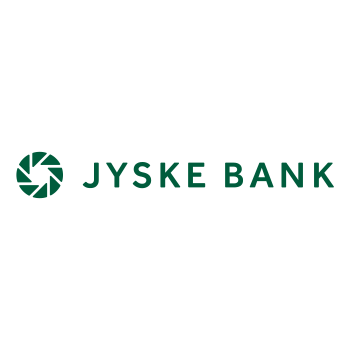
ITKO (IT, Communication, and Organization)
Student Worker, Development Department
Jyske Bank

ITKO (IT, Communication, and Organization)
Student Worker, Development Department
Jyske Bank
Can you tell a bit about yourself?
My name is Christian Neergaard, and I am currently studying for a MSc in Information Technology (IT, Communication, and Organization) at BSS University in Aarhus. I have always had a passion for IT and business, and this education allows me to explore and understand how to align these two. We learn about understanding an organization, its capabilities and needs for IT, and how to provide the right solution that fits the business’ desire. Besides that, we learn about coding, how systems and databases are constructed and/or developed, and how to wrangle and analyze data to provide relevant insights. This combination of business and IT is why I chose this education.
What are your tasks at Jyske Bank, and which technologies do you use in your work?
As a Student Worker at Jyske Bank, I work in one of the development departments, where we seek to develop and digitalize processes and workflows for Jyske Bank’s Bank Advisors. Currently, I work as a Junior Business Developer, where I support my colleagues in conceptualizing the solutions and systems we develop. I take part in user group studies to get an understanding of the end-user and their needs and perspectives. I have assisted in modeling and testing processes to determine how different aspects of a solution should be structured and implemented. Furthermore, I have worked with assignments on rethinking, and how we internally in our department use different communication systems and project management platforms to increase efficiency, standardization, and cross-functional cooperation. I do not work directly with technologies in many of my tasks, but more with the processes and the people around them.
How is your team, and what does a typical workday look like?
All development departments in Jyske Bank work agile after the SCRUM principles. The organization is structured in Tribes and Squads, and in my Tribe, we are around 30 people divided into three squads. As a Student Worker, I support all the squads when needed. In all Squads, there is a great team spirit, and everyone is eager to help if you are struggling with something, which is nice. On a typical workday, I start around 8 o’clock at my desk, where I go through my inbox and get updated by visiting the internal social media JBUnited, where a lot of news is shared, both professional and social. Every morning we have a daily check-in meeting, where we walk through our sprint board and the issues and tasks it contains. Furthermore, I usually have a couple of other meetings during the day. Otherwise, I would structure my day from the tasks I have on my to-do list. I will do my tasks either individually or in cooperation with some of my colleagues. Usually, I will leave the office around 4 o’clock. During the day I eat lunch with my colleagues from the canteen. Sometimes we have social events after work with the Tribe. For example, we have played Padel Tennis, Brewed beer, and bowling. On Fridays, it is also possible to grab a beer after work at the bar Underground, which is located in the basement of the office.
What do you like about working at Jyske Bank, and what is important to you?
I find my job at Jyske Bank very exciting because I get the chance to take some of the theoretical methods and theories I learn at the university and test them in the real world. That gives me a more practical perspective that I think is great and important. As a Student Worker at Jyske Bank, you grow both as a professional but also personally. From day one, they trust you with assignments and responsibility, which I find very giving. Often, my day contains a variety of different tasks, which makes my job at Jyske Bank diverse and interesting. Besides that, I have some great and very competent colleagues who make everyday fun, and they focus on giving me a steep learning curve. I appreciate I can work and get real-life insights into the topics I desire and value.
In what way do you think others should take an IT education?
In my opinion, an IT education is relevant because IT is an area that is evolving at a fast pace, which makes it very interesting and more and more demanded by businesses in every industry. It is also a very diverse area. Not only regarding technology and coding but also about the people and organizations. Because of that, you can dive into the perspective of IT that you find exciting and find the exact path that suits you and your interests.
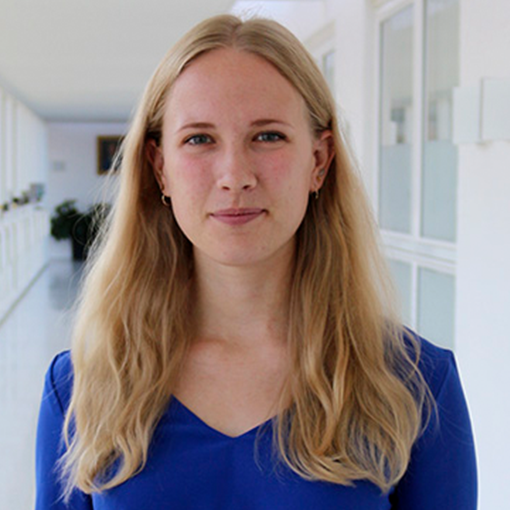
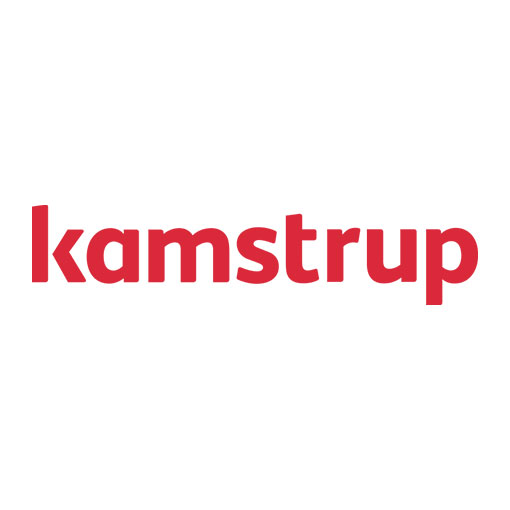
MSc Information Management
Student Worker, Business Applications QMS
Kamstrup, IT department

MSc Information Management
Student Worker, Business Applications QMS
Kamstrup, IT department
Can you tell a bit about yourself?
My name is Josefine Hansen, and I am studying MSc Information Management. On my bachelor’s in Economics and Business Administration, I had elective subjects within Information Science. Before this, I had no idea that I wanted to work with IT, but the elective courses piqued my interest enough to choose a master's degree in IT.
What are your tasks at Kamstrup, and which technologies do you use in your work?
In my position at Kamstrup, I am working with tasks such as creating documentation and describing workflows and processes to improve user experience on our platforms. I also help with configurations within our QMS platform and keep a record of new system implementations. Furthermore, I am working with another student worker on a project to enhance user experience on our Service Management platform by creating feature request forms and back-end improvements.
I mainly work with Kamstrup's QMS platform. What makes it interesting is that the system enables the company to manage compliance and quality. Furthermore, my work with the system requires that I collaborate with the Business - the area that I think is most interesting. It is all about IT understanding the Business and vice versa. That is difficult but very exciting work.
How is your team and what does a typical workday look like?
We are four people in my team, and the team spirit is good! We have regular meetings with our team leader to discuss whatever is on our minds - both work-related and personal. Furthermore, we have social activities outside of work hours, such as board game nights and dinners.
For me, there is no such thing as a typical workday. My workdays are very diverse. But it is often a mix between meetings and individual work tasks. Typically, I would work on one or multiple feature requests during the day. Meetings are often for clarification or teamwork.
What do you like about being a student worker at Kamstrup, and what is important to you?
I find my work exciting because I work between IT and Business, where I try to create alignment and mutual understanding to improve collaboration. I like that I get to work with both technical IT tasks and more human-related tasks. In my job, the work environment is central to me. That I work in an open space where questions and curiosity are welcome. I value to get challenged and trusted with responsibility as well.
In what way do you think others should take an IT education?
Others should take an IT education because IT is much more than programming and technical tasks. It is about how you work with information across the whole organization. All companies depend on proper IT to compete in the market, and regardless of whether you like to work with more technical tasks or more human-related tasks, there is a place for you in IT as long as you have the interest!


MSc Information Science
Student Worker, Junior Business Developer
Jyske Bank, Development Unit

MSc Information Science
Student Worker, Junior Business Developer
Jyske Bank, Development Unit
Can you tell a bit about yourself?
My name is Katrine Grøn-Iversen, and I am taking my master's in Information Science at Aarhus University (Cand IT). I had a lot of doubts about what I wanted to study. But when I read about Information Science, I was drawn toward the education since it focuses on the interplay between humans and information technology. It is an interdisciplinary field that involves various aspects of IT. It focuses on communication and organization, which include learning how to integrate IT into corporations and designing user-friendly programs. All of the above is the reason why I chose this exact education.
What are your tasks at Jyske Bank and which technologies do you use?
I work at Jyske Bank as a Junior Business Developer in their development unit. In this part of the organization, we work after agile principles and use Scrum in our daily routines. We are organized in Squads, Tribes, and Clusters, and in my Squad “PrivatProdukter”, we are responsible for developing and maintaining products, concepts, and systems.
The products are primarily for customers in the Private Segment, such as different kinds of accounts, insurance, and products for kids. We are also responsible for concepts like customer segments and meetings. Our system responsibility involves digital signature, the filing system, and also our internal portal where we can look up customers.
I really like that my Squad has both internal and external users. Because then I get to work on tasks and projects that involve users whether it is the bank's advisors or the customers. It is a dynamic environment that is fun to work in, and it gives me a chance to explore the different areas that my Squad is responsible for. Some of the tasks require me to work with other Squads, which is a great way to learn about the organization and is helpful in building a network inside the corporation. Even though I am a student worker, I am often involved in larger projects with colleagues along with the daily maintenance and smaller tasks, which I think creates a good balance in my tasks.
What does a typical workday look like, and how is your team?
I would take the bus or train from Aarhus to Silkeborg, where the workday begins around eight. We chat in the Squad, drink coffee, and get a great start to the day by checking in with each other and our tasks in our daily morning meeting. It is a nice way to articulate if there are any challenges that we need to overcome. During the day, I have some tasks that I work on individually. I also have meetings regarding tasks or projects with a couple of colleagues, but it can also be some of the Scrum Events which involve the whole Squad.
We are ten people in my Squad of different ages, and we work well together in solving our tasks, and the team spirit is amazing. There is always room for a good laugh during the day and on the occasional social arrangements within the Squad. Sometimes it is a quick quiz, game night, or dinner.
What do you like about being a student worker at Jyske Bank, and what is important to you?
My job at Jyske Bank offers relevant opportunities to get to know and create a network across the organization through the different tasks. That makes it a great environment to grow personally and professionally, which is easy in an informal workplace like Jyske Bank. I find it very thriving to have my own tasks and projects because it means I have my own responsibilities, and it is a chance for me to learn.
I find my work exciting because I get to work in the field between IT and business and explore my curiosity. This field relates to the methods and theories I have learned in the different courses in Information Science, which makes it a great way to learn the practice of the field.
In what way do you think others should take an IT education?
IT is an amazing education because it can be formed and used in various aspects. It is not all about computer science and coding. It also involves the organizational and human aspects of IT which is important to have in mind to fully understand the need for IT. And if you understand the need for IT, you can also take part in developing it.
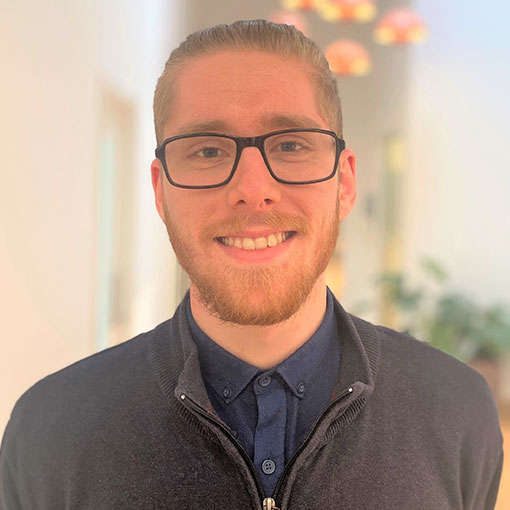
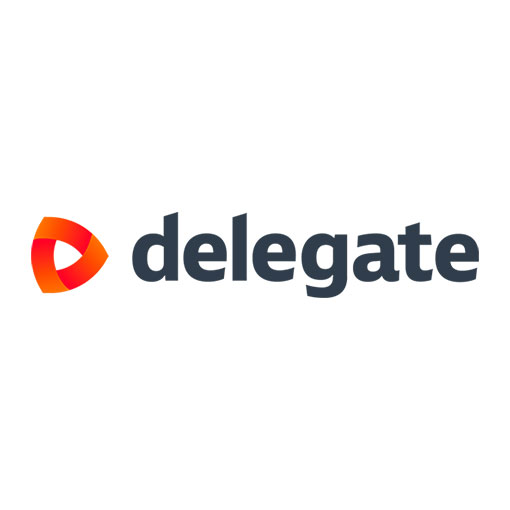
Health Technology
Intern, Associate Consultant
Delegate

Health Technology
Intern, Associate Consultant
Delegate
Can you tell a bit about yourself?
My name is Lasse Eskildsen, and I am studying Sundhedsteknologi. I chose this education because it suited well with my interests. Also, I think educations with 50/50 boys and girls work the best.
What are your tasks and which technologies do you use?
As an intern at Delegate, I cannot comment on several of my tasks, but I am coding a lot. When I get to work, I will most often meet with my project group and then work on the assignments we discussed in our meeting. The technologies I work with the most are C#/.NET, Angular/node.js, Entity Framework, Cosmos DB, Azure, and a few more. It is nice that I get to work with newer technologies that I also know there is a use for in the future.
How is your team?
In my department, we have different groups. We have a general team of about 14 people and a project group of about five people. I think both groups have a good team spirit and are quite competent.
What do you like about being an intern at Delegate?
I think my job is exciting because I get a lot of responsibility which makes the job more interesting. No one is micromanaging me. In other words, I get a task, and then it is up to me to solve it. However, even though I have a lot of responsibility, I can always get assistance. All my colleagues are very competent and willing to help if you get stuck in a problem. Furthermore, I find it central the fact that there is mutual respect and that my employer respects me, my values, and my goals.
In what way do you think others should take an IT education?
In my opinion, others should take an IT education since IT people are needed everywhere. So, there is a lot of job security in taking an IT education. Also, IT development is quite fun. I think that many other types of jobs are more about memorizing tasks and solving them on autopilot. But IT development is like solving puzzles all day long. Of course, there is also some repetitive stuff while developing, but you still have fun when problem-solving.
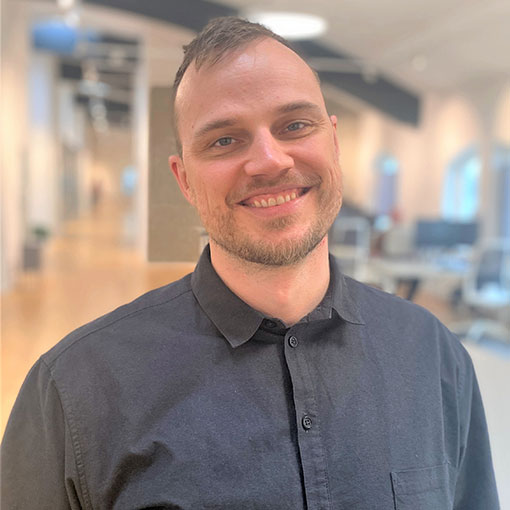

Computer Science
Student Worker, Associate Consultant
Delegate, A/S CRM

Computer Science
Student Worker, Associate Consultant
Delegate, A/S CRM
Can you tell a bit about yourself?
My name is Laws Jørgensen, and I am studying Computer Science. I chose this education because it gives me a lot of freedom to decide where I want to work and what subject. IT is a large field of study, and Computer Scientists are needed all over the whole world.
What are your tasks and which technologies do you use?
I am working with CRM systems for public and private organizations helping them with building better solutions that make life easier for employees and customers.
Since we are a Microsoft Consultant business, all our projects use Microsoft’s platforms. For the most part, I work with Power apps, Azure and Dataverse, and then I use C# and Typescript for custom functionality. It is a solid opportunity to get more comfortable with writing production code. When using power apps that are low code/no-code systems, you always have something visual to test your code against and visualize what you are actually building. I have only been working at Delegate for a few months, so I am fairly inexperienced, but I am finding a lot of joy in learning the small tricks and workarounds that make it smooth for the customers. Moreover, I really enjoy working on tasks that will have a potentially significant impact in the “real” world and that I get to have a look into how large organizations work on the inside.
How is your team at Delegate?
We are 12 in our CRM team, and we are six persons from different Delegate teams on the project I am currently working on. We have a lot of fun across our teams and several social events. Last time we went to an escape room and out for dinner afterward. There is a very loose atmosphere in the office, and everybody talks to everybody, which I enjoy.
What does a typical workday look like?
On a typical workday, I will start at 08:00. However, Delegate are very flexible on meeting times, and if you want to work from home, you can do that. But I prefer starting early and sitting in the office and being part of the social life. I start my day by checking emails and following up on tasks assigned to me. Usually, we have a morning meeting where we talk about what we did yesterday and what we are doing today. On my project right now, we are using SCRUM, which is a great learning opportunity to put the theory on agile development from my studies into practice. After our meeting, I start whatever task I have planned for the day. Most days, I play a game of table football or two during the day and have lunch with my colleagues. Usually, I have a few calls and meetings with my team or people from the project I am working on. Around 16:00, I close down for the day. Some days I stay longer and eat dinner with some of the others from the office, play board games, or do another activity like sports or movies.
What do you like about being a student worker at Delegate?
I find my job exciting since it is a great combination of many things. Delegate has a good work environment, and I get personal responsibility, challenging tasks, and work with people out in the “real” world. It is important to me that I learn new technologies and that I get to use the skills from my studies and the other way around. Also, I appreciate that I feel welcome and wanted.
In what way do you think others should take an IT education?
I have worked in the military for three years, and I am also a schoolteacher. What made me change to IT is the potential freedom this field of work can give you. I love to travel, and I do not think there are many professions where you can work remotely or find work anywhere on the planet as easily as within IT. So for me, it is a combination of interest, freedom, and flexibility. I think IT is probably one of the best professions to be in right now and most likely for many years to come, and there are endless possibilities for what you can do and work with, even if coding is not your thing. There are not many fields of study where you can make such a big difference for potentially a lot of people, with so few resources. You just need a computer and time, and then you can make the crazy coolest stuff!
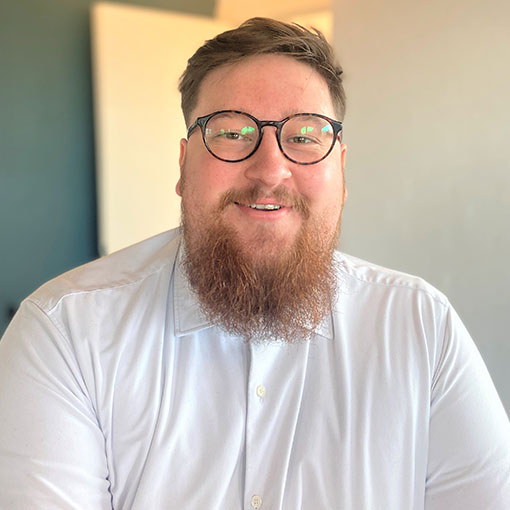

Software Technology Engineering
Student Worker, Associate Consultant
Delegate, Microsoft 365 Department

Software Technology Engineering
Student Worker, Associate Consultant
Delegate, Microsoft 365 Department
Can you tell a bit about yourself?
My name is Morten Overgaard, and I used to study economics at BSS, but then I was faced with the education loft rule. So, I began to doubt whether I made the right choice studying economics. I had a clear vision of what I wanted to become, and there was never a doubt that I wanted to work with IT - whether it became the economic or technical side of IT. To make the right educational decision, I stopped studying economics and took a break from school for a year and a half, and then started my current education as Software Technology Engineer. My goal has not changed since I started studying economics, I just decided to take a different approach. Instead of taking the economic approach - I chose the technical one.
What are your tasks and which technologies do you use?
I started at Delegate as an intern, where the first project and customer I got to work with was Norlys. During my time at Delegate, Norlys has had three projects with us, and I have been a part of all of them.
I primarily work with SharePoint and through that mainly with React. I have always liked doing front-end work. There is something about visual feedback that I find appealing. Moreover, I enjoy doing UI at Delegate, and that I get to put my touch on some of the tasks I work with is awesome. I had no experience with React from school, so there has been a lot of learning by doing but luckily, React is easy to learn, which is a huge pro.
How is your team and what does a typical workday look like?
My current team consists of four people, and three are developers. I think we are tightly knitted, and there is a great team spirit and willingness to help, which is fantastic. I feel like we complement each other as well. Also, we have a lot of banter, which only makes the work environment more pleasant. To simplify: I would definitely grab a beer with each of the teammates after work.
As a student worker at Delegate, no days are the same. My assignments are selected based on the tasks I have in school. But mostly, I begin my workday between 08:00-09:00, then I will have a Scrum meeting at 09:00, and afterward, I will work on my tasks till I either have to go to school or go home. There is a lot more to it, but as I said - no days are the same.
What do you like about being a student worker at Delegate?
There was never a doubt in my mind when I got the opportunity to take an internship as a consultant. I really love working together with customers and having that interaction. I like talking to people and figuring out what the best solution is to their problem or case. Working as a Consultant, you also have a lot of responsibilities, which suits me just fine.
The opportunity to grow personally and professionally is my main priority at a workplace, and I am sure that I can develop both as a person, a colleague, and a Consultant at Delegate. As I mentioned earlier, my goal has always been the same whether I studied Software or Economics. I just decided on the technical approach, and I am positive that my decision was a good one, as I am sure I can work towards my personal goals at Delegate.
In what way do you think others should take an IT education?
If IT interests you just the slightest, you should study IT because of the great work and study environment. There is a sense of togetherness more than when I studied Economics. There is solid room for development, and it is not like you are limited when you are done studying. You have so many options, and I think a common misconception is that you are just limiting yourself by studying IT. But that is not the slightest bit true. I feel like my options have multiplied tenfold.
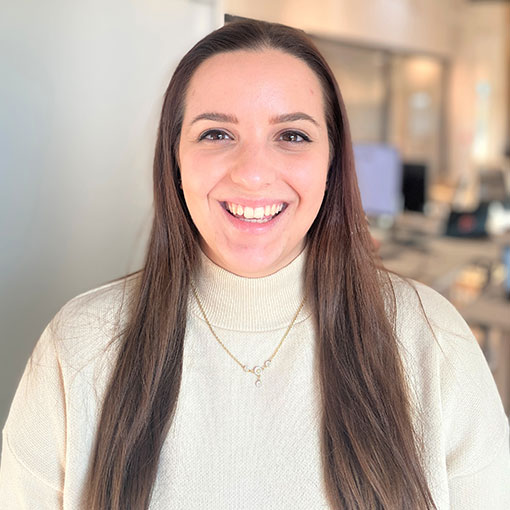

MSc Business Intelligence
Student Worker, Associate Consultant
Delegate

MSc Business Intelligence
Student Worker, Associate Consultant
Delegate
Can you tell a bit about yourself?
My name is Natalia Imre. I am from Hungary and studying MSc Business Intelligence in Aarhus. I have a Bachelor of Business Economics from Aalborg, but I was always more interested in quantitative methods and IT-related topics. I did not necessarily want to become a programmer, but I also did not want to stick to only business either. Therefore, I chose to study for a master’s in Business Intelligence which offers just the right mix of business and IT.
Why did you choose to study in Denmark, and how is it to be a student in Greater Aarhus?
I chose to study in Denmark due to its great educational system, the open mindset of the people, and the many opportunities the country provides. In addition, the good travel opportunity to visit my home country had some influence in choosing my study country as well. Before I came here, I studied in the US for a year. Although I liked it a lot, it would have been hard to get home fast in an emergency. Therefore, I knew I wanted to find a place in Europe.
I think Greater Aarhus is a great place to live and study because the area has a great diversity of people. And I believe people are nicer to each other in countries with many nationalities, and here in Denmark, many Danes give internationals great opportunities to integrate into the Danish society.
What are your tasks and which technologies do you use?
I am still very new, but I am currently working on a data integration project, where I am working with Scribe and Azure Synapse Analytics. Moreover, I am waiting on a BI reporting project to be approved, where I will be working with Azure and Power Bi.
I find Scribe very interesting, and it is an older data integration technology that I have not heard of until a few weeks ago. Now I need to figure out how it works, and Delegate has used it in previous projects. Azure Synapse is the opposite of that. I have not heard of it before because it is quite new. At the university, we had to work with Azure and SQL servers, but Synapse is slightly different, especially the serverless SQL option.
Power BI is one of my favorite tools to work with. It is a data visualization tool, and I find that part of working with data important (and fun, to be honest). I really like the nearly endless opportunities that one can do with data there.
How is your team at Delegate?
I am in the unique position that I belong to two teams. My primary place is in the Dynamics 365 team, but I mainly work with my Data and AI team members. Both teams have around ten people, and I enjoy having team meetings. There is always a good team spirit in Delegate, which is one of the best characteristics of the company. Even though I have not worked at Delegate for a long time, it feels like a big family sometimes, and going to the office feels like home.
What does a typical workday look like?
I usually arrive around 08-08:30 and start working. Although lately, I have been working from home. During the day, there is always a possibility to chat with my very kind colleagues, and mostly there are some meetings regarding the ongoing projects. Around noon someone always asks if I want to get lunch, and in a small group, we head to the canteen and grab some food. Lunchtime is always fun because I get to listen to people talking about everyday things in Danish. In that way, I can practice my Danish by listening to their stories. They are also sweet to switch over to English for me to understand them better. But lately we have been chatting more and more in Danish. In the afternoon I continue working.
Sometimes my colleagues play table football. I am a terrible player, but when I hear someone is playing, I usually head to the kitchen to grab some tea or snacks so I can watch them play. I have never seen people loving that game so much, and everyone is really good at it. Before I head home, I usually check in with the people I am working with to inform them what I have done and when I will be working next. I head home somewhere between 16:30-17:30. Moreover, Fridays are especially fun because we have breakfast together in the office and people start the table football games earlier.
What do you like about being a student worker at Delegate?
I like my job because I get to work with so many clever people, work with exciting technologies, get to apply my textbook knowledge from the university, and that I get to grow in a supportive environment. Additionally, I appreciate the work-life balance, or should I say work-life-study-balance and the opportunity for professional development.
In what way do you think others should take an IT education?
Others should take an IT education since IT is not the future anymore but the present. IT keeps expanding everywhere in our lives, and now the Pandemic has also shown us that it is critical to have well-implemented IT systems that work. Moreover, most companies keep piling up data and do not use it to their advantage. I think that is a terrible waste of valuable information. To manage that data, the business people need to gain more IT knowledge, and possibly IT people need to gain more business knowledge. So, I think that technological educations are very important, and the generations in or around the university-age grow up with computers anyway, so they are already quite familiar with IT in general.
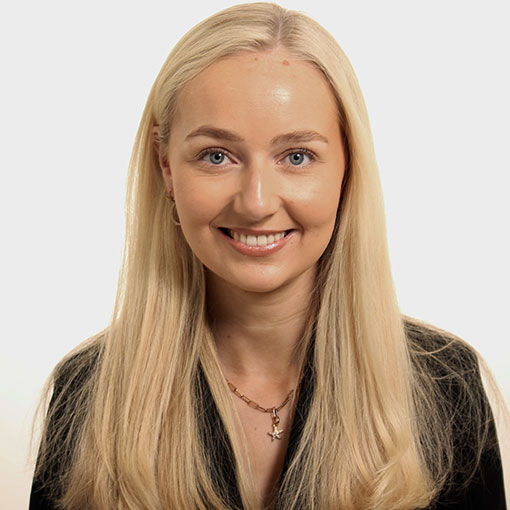

MSc Information Management
Student Worker
Kamstrup, Core IT

MSc Information Management
Student Worker
Kamstrup, Core IT
Can you tell a bit about yourself?
My name is Nora Skeide. I am from Norway and studying MSc Information Management in Denmark. With a bachelor’s degree in Business and Administration from BI Norwegian Business School, I wanted to pursue a master’s degree with more focus on the combination of business and technology. So, I decided to take the MSc Information Management because I find the alignment between business and IT very interesting. Here we learn how to lead digital transformation, manage information, and improve information systems. This combination of business and technology is very wanted in today’s job market, which also was relevant to me. There are tons of opportunities and fields you can specialize in., and that is what makes IT a good choice for the future.
Why did you choose to study in Denmark, and how is it to be a student in Greater Aarhus?
I decided to take my education in Denmark because it is a beautiful country, and I really like the culture here, and since it is very similar to Norway, it feels safe. From the moment I moved to Aarhus, I felt at home. Aarhus is a very personal and beautiful city, and it is easy to make connections because the town is not too large. You quickly get familiar with it. Additionally, it is a great choice when being a student since it is a very student-friendly city with a large population of fellow students.
Furthermore, the great travel opportunities to visit my home country also influenced my choice of study destination. I wanted good travel opportunities so that I could visit Norway with ease.
What are your tasks at Kamstrup, and which technologies do you use in your work?
I started in Kamstrup as a student worker in February 2021, where I got the opportunity to get familiar with the company and tasks before my internship in August 2021. Now I am back as a student worker since my internship period has ended. My first months at Kamstrup started with getting familiar with the company, the different technologies, getting to know my colleagues and the culture, and participating in several meetings.
During this year, I have worked on numerous projects and tasks. For instance, I have worked with process improvement to align different IT teams and departments. The development of the internal IT Service Management platform, coordinating service-cases between the IT teams, analyzing data, and tasks related to compliance. I have been able to work across several departments, which has been very exciting.
The primary software I have been working with is the IT Service Management tool called ServiceNow. With this, I have been able to analyze and improve workflows, which has been very interesting. It has also been exciting to customize the platform and dashboards to make them work optimally for the specialists. In that way, I get to work closely with several people.
How is your team?
My team is part of the IT department Group IT and is called Core IT. The team consists of a broad mix of system administrators, network specialists, operations specialists, etc. That means there is always someone very competent people I can talk to if I stumble upon a problem with my task or have some questions. Everyone is very open and helpful, and no questions are stupid. That is something I really enjoy because I am not a technology expert! But it is a very good feeling and opportunity that I get to ask the specialists about anything, and they explain it to me in an understandable way.
What does a typical workday look like?
On a typical workday, I will jump on the bus to Kamstrup in Skanderborg and start the day at my desk by checking some emails and saying good morning to my colleagues. Maybe grab some breakfast in the canteen and make some coffee. Usually, I have several meetings during the day, which I start preparing. For instance, prepare a presentation of a new feature in ServiceNow with the ServiceNow engineer. It is my job to be the connecting link between the business aspect and the developers. That means that my manager might explain a new improvement that is wanted on the platform, and then it is my job to talk to different stakeholders such as developers and specialists and create a suggestion. Afterward, this will be tested and presented to my leader. If approved, the process of implementation and communication will start. So, I get to have several roles, which I think is very interesting. I have learned a lot by communicating with the specialists about enhancements and opportunities, and I gained more and more technological competence.
What do you like about being a student worker at Kamstrup?
I think my job is exciting because I work with the projects and tasks that I find interesting. In the past six months, I have started to find compliance work very fascinating. When I talked to my manager about that, he immediately gave me a task regarding compliance that I got to immerse myself in. He also included me in meetings and other projects regarding compliance, which I appreciated. In that way, I build competence in what I find interesting. That is very motivating and not something that I take for granted.
Moreover, I think my job is exciting because I have many different roles. In other words, I gather information about technological possibilities regarding a new feature from the specialists and put it together into a documented suggestion. That means that I get to work with communication and people in addition to technology and creating something new.
What is important to you in your job?
The most important factors for me at Kamstrup are that I have a skilled leader who values my time and input, a team who respects and appreciates me, and a great work environment. Something else I appreciate is that I, as a student worker, get treated on the same basis as the experts and specialists. That my viewpoints and inputs are valued and appreciated is a fantastic feeling, especially when you are new in the technology field.
In what way do you think others should take an IT education?
I think others should take an IT education because it is very exciting, and it is not all about servers and numbers. I was not sure that I would fit into the IT field because I do not view myself as a very technologically competent person, but everyone fits into this world as long as you are interested in learning. And last but not least, the high demand for technological competencies in today’s job market makes the list of opportunities massive. You can safeguard your future and open many doors by pursuing an IT education!
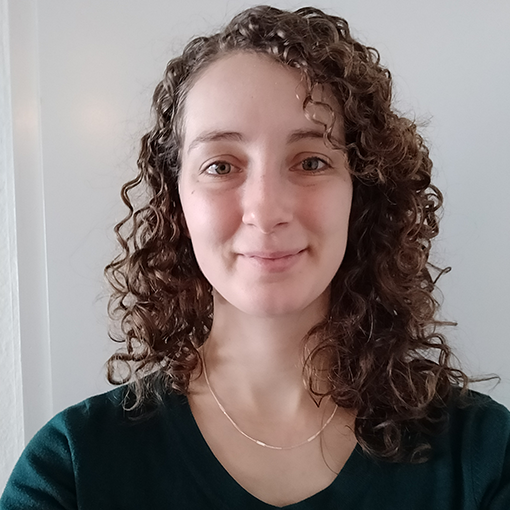

Digital Design
Student Worker in ServiceNow
Kamstrup, Business Application

Digital Design
Student Worker in ServiceNow
Kamstrup, Business Application
Can you tell a bit about yourself?
My name is Rikke Cecilie Badsberg, and I am studying for a master's in Digital Design, and I also have an AP in Computer Science. I chose to study Digital Design because it gives me insight into the human aspects of IT – how people interact and understand IT and interfaces. The education is practical, theoretical, and almost philosophical, which I really enjoy. I like to ask questions, design, and build systems and artifacts where I also consider their impact on how people relate to, understand, and use IT practically. During my education, I get to work with different technologies when designing artifacts. Moreover, I think exploring, experimenting, and considering the improvement of interactions and relationships between people and IT is interesting. IT should help people in their daily lives and work lives, and not be annoying, difficult to interact with or understand.
What are your tasks at Kamstrup, and which technologies do you use in your work?
In my position at Kamstrup, I am configuring the business application/ServiceNow and coding a bit to adjust ServiceNow to the business needs. I work a lot with rethinking UX and user-friendliness in existing configurations to help people use the forms and portals. In connection, ServiceNow is the primary technology I work with. It is a big system containing many aspects of customer support and a ticket system for development and service portals.
How is your team and what does a typical workday look like?
In my team, we are three people, and 20 in the overall Business Applications Department. We work well together, have fun, and help each other out. Before being a student worker, I was an intern. The whole training was excellent and structured by my preferred way of learning.
On a typical workday, I will have a few meetings about a project, rethink an old process, and consider how to build an improved version in ServiceNow. Moreover, I will support my colleagues through the ticket system and have calls/meetings to understand their needs. Also, I will be solving problems through the configuration and programming of specific parts within ServiceNow.
What do you like about being a student worker at Kamstrup, and what is important to you?
I find my job exciting because I help people solve their IT problems by configuring a well-designed system. I get the thrill of solving problems and helping people out while being creative, exploring, and experimenting within the system.
The most important thing for me is that I learn and can improve through experience and training and that the work is rewarding. Additionally, I have a good team, flexibility regarding working hours, and people treat each other well.
In what way do you think others should take an IT education?
Others should take an IT education because IT is also about people and helping them do their work better and have better lives. While also being about concentrating and solving problems. Of course, IT is sometimes a bit technical. But this field is not only for the nerds in the basement - an assumption that might be making people think that IT is not for them. IT is exciting, thrilling, and allows for creativity and fun - while having the possibility to improve people’s lives!
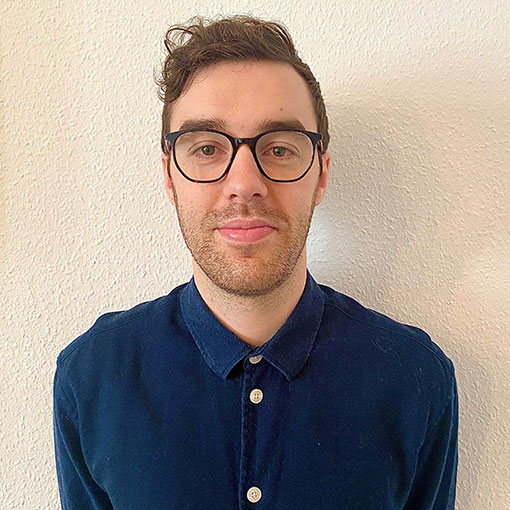
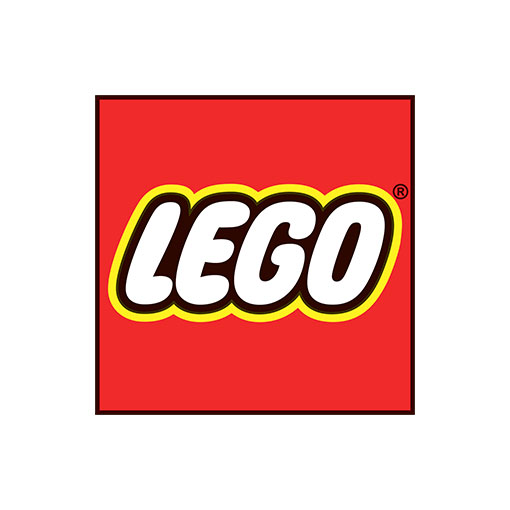
Information Studies
Student Worker
The LEGO Group, Corporate Products Technology

Information Studies
Student Worker
The LEGO Group, Corporate Products Technology
Can you tell a bit about yourself?
My name is Tobias Norman Madsen, and I am studying for a master’s degree in Information Studies at Aarhus University. I chose this education because I have a strong passion for technology and how to implement, develop, structure, and optimize different technologies.
Obviously, the term technology is broad and can be interpreted in many ways depending on the perspective. The education is interdisciplinary, so initially, at the bachelor’s degree, you get the chance to find the way you find most appealing. For me, that quickly became Software Development, and thus I directed the courses and my master’s degree to address that. I chose this education to learn more about Software Development and how it impacts the people/organizations using it.
What are your tasks at the LEGO Group, and which technologies do you use in your work?
As a student worker at the LEGO Group, I am currently working on a software implementation project. Here my role is as an Integration Developer. Together with my colleagues, I am responsible for developing integrations for the system we are implementing - both inbound and outbound. That could be API development, SFTP, middleware applications, web services, etc.
I get to work with many different technologies, and in my current project, I work with integration technologies and several types of Webservices, Microservices, & APIs. I have most recently developed APIs that follow RESTful principles with Node.js and relevant NPMs like Express. For SVC and collaboration, we have our code stored in a repo on GitHub.
How is your team, and what does a typical workday look like?
We are around ten people in my team, and the team spirit is awesome! Everybody is eager to help and support each other if needed. On a typical workday, I would start around 08:00 at the offices located in Billund, right next to Legoland. What is not to like? After a quick good morning to my colleagues, I would grab a cup of coffee and open my computer. Our team works in agile ways, so we have an open sprint board containing our tasks from the backlog. I would then structure my daily tasks. During the day we will grab some lunch from the canteen. Afterward, my team is during some daily stand-up to our backlog, where we shortly discuss potential blockers or questions to each other.
What do you like about working at the LEGO Group, and what is important to you?
I like my job simply because I love tech! I love coding! So, of course, being a part of a tech team in an agile environment is very exciting. I also really like that the LEGO Group focuses on helping their Student Workers and Interns grow by giving us some exciting tasks and responsibilities. Because I find it very important to learn new things, have the chance for personal improvement, and get challenged in my daily work tasks. Also, I value the great and open environment and the good relationship with my colleagues.
In what way do you think others should take an IT education?
In my opinion, others should choose an IT education because IT is an exciting world once you dive into it. Because it is constantly moving and evolving, and there are many new things to follow.
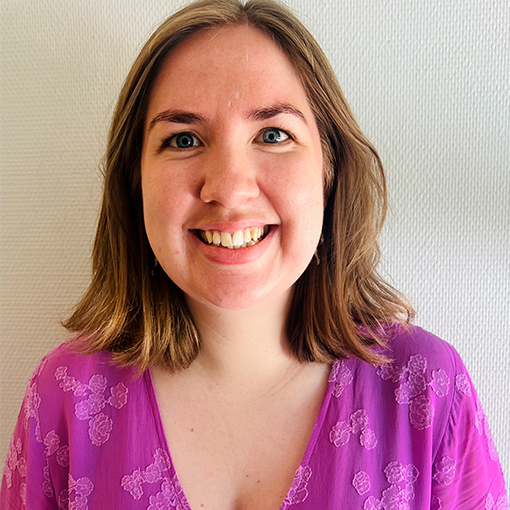

Information Technology (ITKO)
Student Worker in Team Customer Portal
BESTSELLER TECH

Information Technology (ITKO)
Student Worker in Team Customer Portal
BESTSELLER TECH
Empowering Growth: My Journey at BESTSELLER TECH
Have you ever thought that a job within tech would make your life complete?
Well, I did not, and let me be honest: Tech was never really a field I considered when I was younger. I had no idea what opportunities and different fields existed within tech – but I do now, and here is my journey as a non-technical person within the field of tech.
Why I decided to take a Tech Turn in my career
My name is Trine Guldberg Jakobsen. I have a bachelor's degree in journalism, and right now I am studying for a master’s degree in Information Technology (ITKO) at Aarhus University while I work part-time as a student worker at BESTSELLER TECH.
My interest in tech sparked from talking to some of my dorm mates studying different IT-related educations. Tech is constantly changing our ways of engaging, communicating, and how we work. I got to experience the work changes first-hand, especially during the last three semesters of my bachelor’s where big changes in tech influenced the journalistic field.
I became increasingly certain that journalism was not the perfect match for me career-wise, so I started to explore the options to do a tech turn in my professional and educational life. Long story short, I ended up in an amazing internship at Co-coders, where the co-founder, Lise Lystlund, inspired me to believe in my abilities and encouraged me to start diving into the world of tech – even with no prior experience!
How did I end up at BESTSELLER TECH?
Shortly after the internship at Co-coders ended, I attended a student lunch visit at BESTSELLER TECH arranged by Destination AARhus, and the company immediately caught my interest as a workplace.
At the lunch visit, employees from BESTSELLER TECH told us what it was like to work at the company – and here I would like to highlight what a great experience it was to meet potential coworkers and listen to their experiences and work journeys. One of the most important statements I got, was how they as employees are met with trust and responsibility – that BESTSELLER is a workplace where you can grow and learn. And where your background does not necessarily play a part in your opportunities. I went home and sent my application that same day.
As a stroke of luck, I was not offered the position I initially applied for at BESTSELLER: Instead, my application was forwarded to Carolinne Moon Svensson from team Customer Portal, and she offered me a position as a student worker in her team. Yay!
The will to learn, grow, and take responsibility
Team Customer Portal is a small and close-knit team. Every member is incredibly talented and dedicated but at the same time generous in sharing their time and knowledge with me and each other, which has helped me grow an incredible amount within the now 9 months that I have been working alongside them.
Even within my first month of working in the team, I was already met with great trust and an amount of responsibility I would have never dreamed of. In my eyes, that is what BESTSELLER does best. They show faith in their employees – and if you have the will to learn, grow, and take responsibility – the possibilities seem almost endless.
So, how does a non-technical person fit in at BESTSELLER TECH?
Well, my non-technical background has not yet been an obstacle to my work at the team Customer Portal. Instead, my alternative perspective and communicative skills have been treated as valuable assets for the team. Anything that I do not know, but am curious to learn, my team is more than happy to teach me. I use my skillset from my journalistic background and build new knowledge on top of that while also using what I learned at my master’s in real life.
My primary task in the team is to onboard our markets to the Customer Portal. This includes configurations and testing of their portals and quite a few training and alignment sessions with each market, and I am trusted with full responsibility for the onboarding process.
During each market’s onboarding process, I am using what I learn in my study in real-time, and it is such a pleasure to attend classes and be able to reflect it directly to my work at BESTSELLER.
I am certain that my practical learning from BESTSELLER combined with my ITKO studies has created a power duo that has made my learning curve this past year incredibly steep.
I can only advise others to seek practical knowledge to supplement their studies, as my experience is that this has been an amazing way to learn!
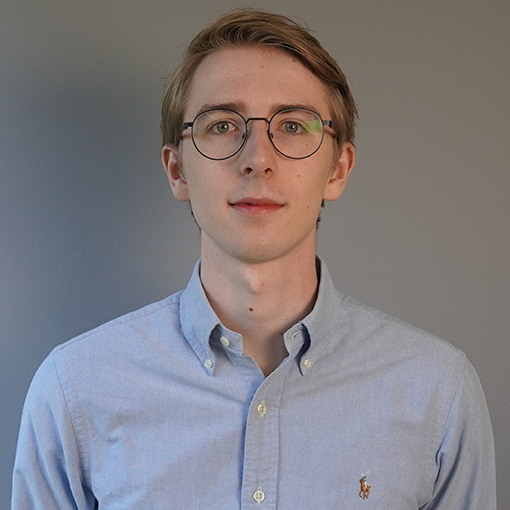
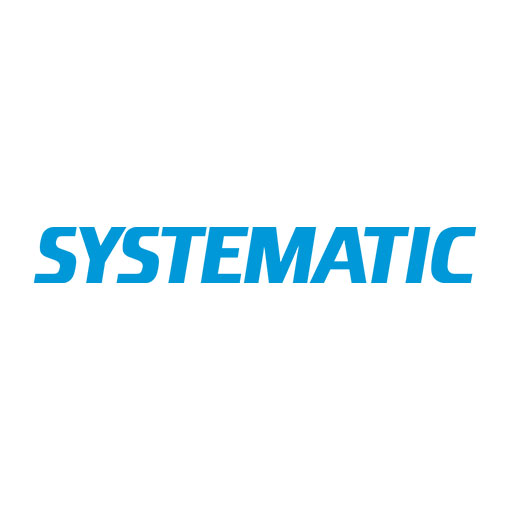
Computer Science
Student Worker, Junior Systems Engineer
Systematic, Digital Transformation Department

Computer Science
Student Worker, Junior Systems Engineer
Systematic, Digital Transformation Department
Can you tell a bit about yourself?
My name is Victor Kjelde, and I am studying a master’s degree in Computer Science. I have always had a passion for tinkering around on the computer, creating software, and stuff like that. Also, I have a fondness for mathematics. Put those things together, and you get Computer Science. So, the choice of education was straightforward for me. Throughout my bachelor's degree, I got interested in some specific subjects of Computer Science which I then chose to pursue in my master’s program.
What are your tasks at Systematic, and which technologies do you use in your work?
As a Student Worker at Systematic, I am currently working with the monitoring of servers. I work on scripts and other solutions to improve workflow and the onboarding of others to my team. Currently, I am working with Grafana, Prometheus, Docker, and Ansible. These technologies are fascinating because of all the automation and monitoring you can do with them.
How is your team and what does a typical workday look like?
We are around 15 people in my team, and I think there is a good team spirit. I often train with my colleagues at the gym in the Systematic Tower, and we usually go to the Friday Bar together and get a beer or wine as well.
I usually arrive at Systematic's headquarter at 08:00 on a regular workday. Afterward, I check my email to see if I have anything I need to look at before I start working on the current feature I am implementing. Then just before noon, we have a SCRUM meeting. At noon I get lunch from the canteen, and after I continue to work on my current features. At 16:00, I stop for the day. On Fridays, I usually stop working around 15:00, where I go to the Friday Bar with my team.
What do you like about working at Systematic, and what is important to you?
I think my job is very exciting because I get to use the stuff I learn from my education in the real world and because my job means challenging tasks instead of mundane ones. Moreover, I highly value that I get to follow my passion, get responsibility, that my colleagues make my job exciting, and that my flexible work hours fit in within my education.
In what way do you think others should take an IT education?
If you are just a bit interested in computers, I think an IT education is brilliant. You do not need to be the stereotypical IT nerd to study IT since it is for everyone. IT is an area that constantly changes and therefore never gets boring, and there is always something new to learn. You get to take part in digitization which is one of the significant forces of change in our world today. Currently, there is also a distinctive need for people with an IT education, which makes it more straightforward to get a job once you graduate.
2025 © Destination AARhus. All rights reserved.
